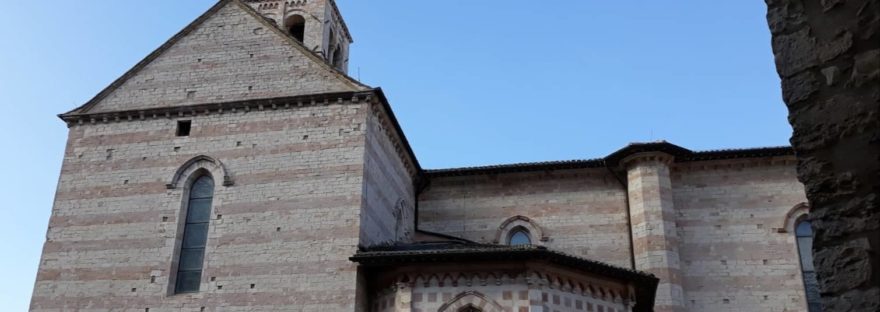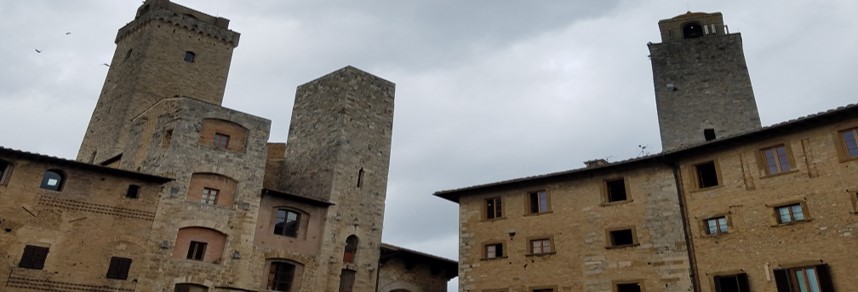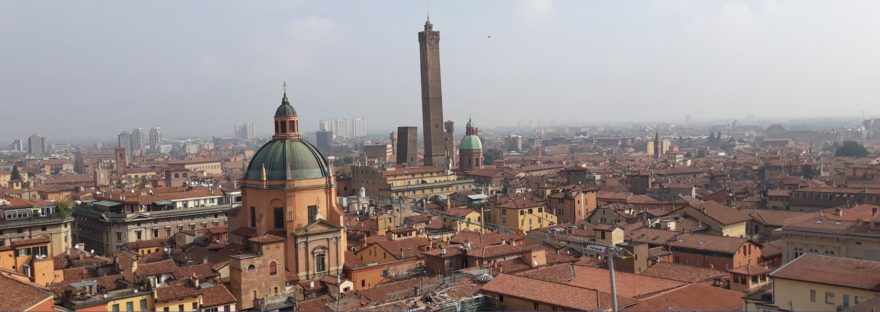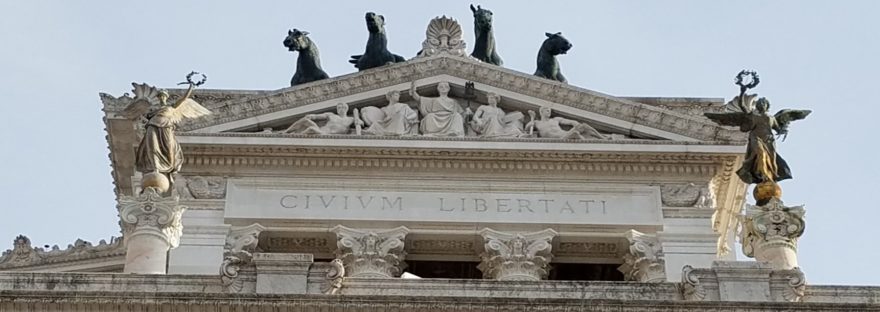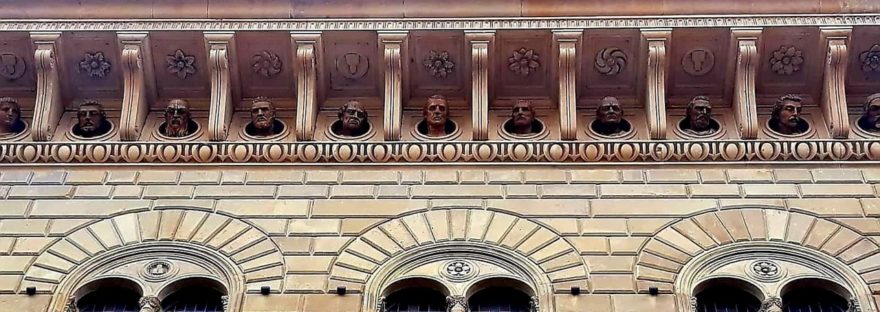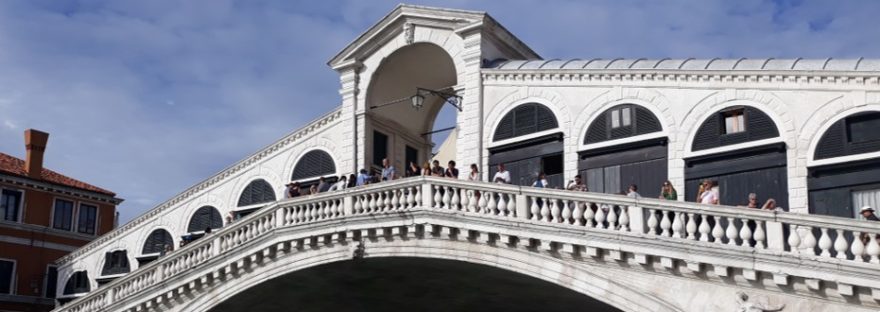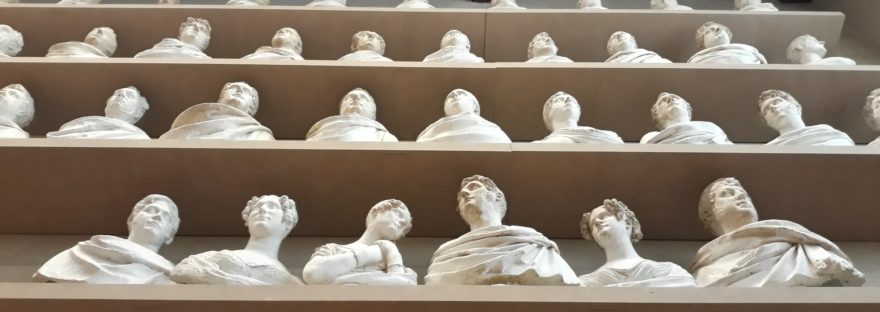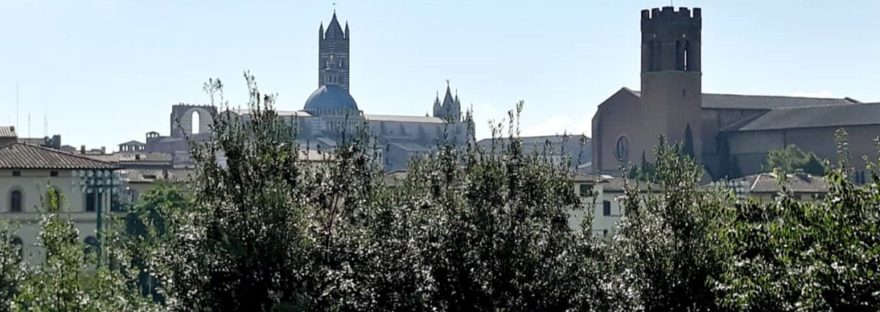Opposite the Basilica of San Francesco and at the other end of Assisi, Italy, is the “Basilica di Santa Chiara” or Basilica of Saint Clair. “Chiara Offreduccio” was the eldest daughter of the Count of Sasso-Rosso and as well being a follower of and protected by “San Francesco”. In the 13th century she founded the Order of Saint Clair, originally under the name of the Order of the Poor Ladies of Saint Damian, in a manner much like the Franciscan monks. Continue reading ““Basilica di Santa Chiara” – Assisi”
Category: Italy
City of Towers, San Gimignano
San Gimignano in the Italian Tuscan Hills, is known as the city of towers. Something that should not surprise us from a city that has been recognized by UNESCO for being a medieval city.
Piazza del Mercato Nuovo
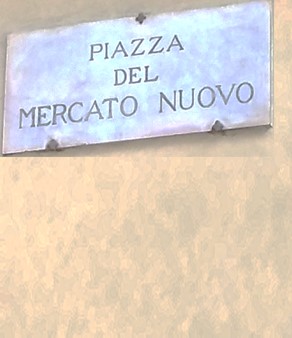 The “Piazza del Mercato Nuovo”, also known as the “Loggia del Mercato Nuovo” or “Porcellino” (pig), is just a short walk from the “Piazza della Signoria” of Firenze. This 16th century building replaces the “Mercato Vecchio” that was near the “Piazza della Repubblica”. Continue reading “Piazza del Mercato Nuovo”
The “Piazza del Mercato Nuovo”, also known as the “Loggia del Mercato Nuovo” or “Porcellino” (pig), is just a short walk from the “Piazza della Signoria” of Firenze. This 16th century building replaces the “Mercato Vecchio” that was near the “Piazza della Repubblica”. Continue reading “Piazza del Mercato Nuovo”
Bologna – the Notai and Podesta Palaces
In the Emilia-Romagna region of northern Italy, is the city of Bologna, which is also the capital of the region. Named by the European Union as the European Capital of Culture for the year 2000, Bologna is undoubtedly a city of the highest order. When strolling through the city you can see why the distinction was given. Continue reading “Bologna – the Notai and Podesta Palaces”
“Altare della Patria” – Rome
Atop of one of the seven hills of Rome, the “Capitoline Hill” and facing the “Piazza Venezia”, one finds a large monument of white Botticino marble. It is the “Altare della Patria” of Italy, a national monument to King Vittorio Emanuele II (Victor Manuel II of Italy), who was king of Sardinia. Continue reading ““Altare della Patria” – Rome”
Deciphering Labyrinths in Siena
Traveling through unknown places could be a great challenge. Every city, large or small, can quickly become a great maze if we do not identify points of reference that helps locate ourselves on the route. For example, a city like Siena, in the Tuscany region, can create some anxiety. Continue reading “Deciphering Labyrinths in Siena”
“Chiesa Santi Bartolomeo e Gaetano”
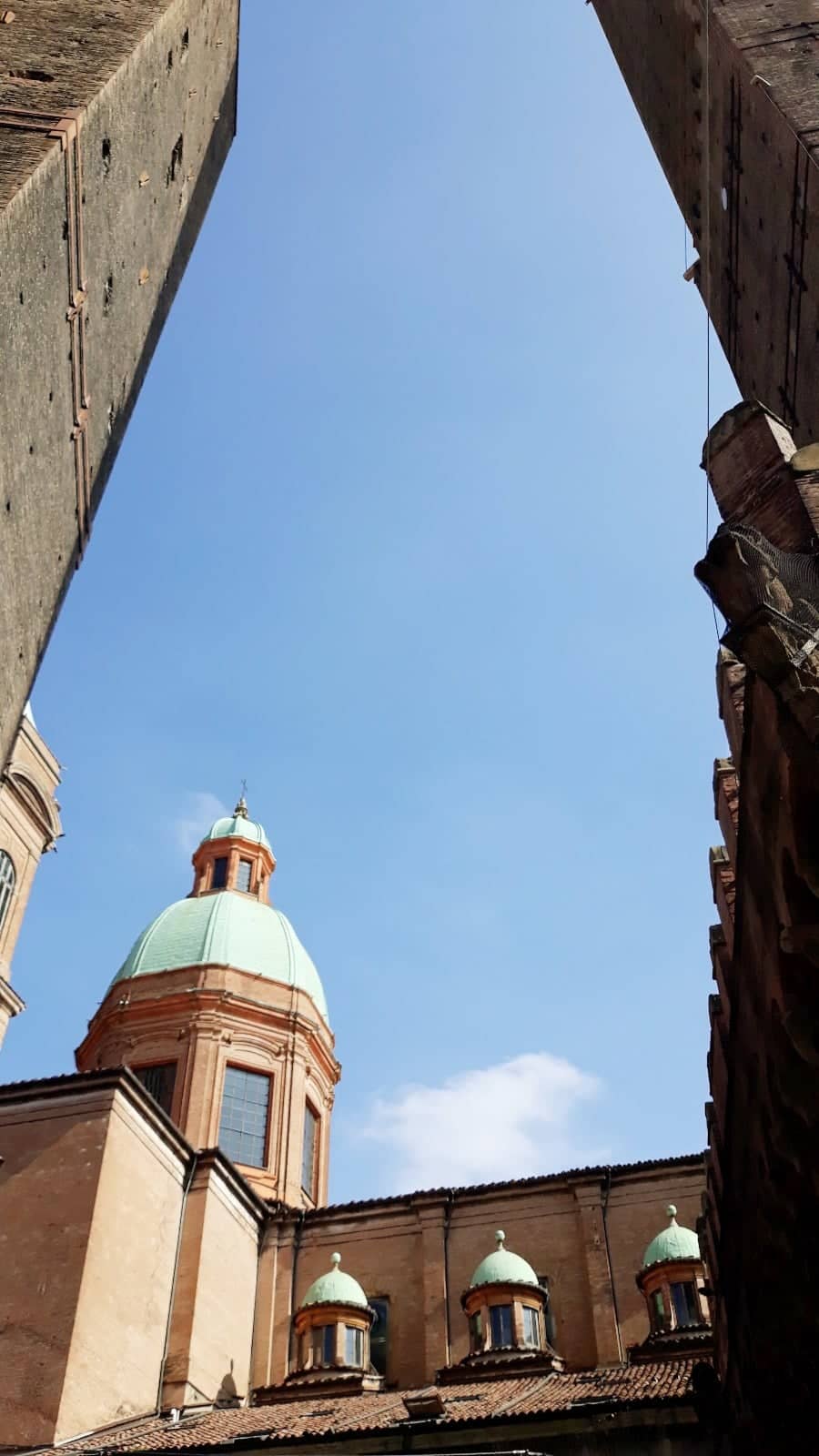 Thousands of visitors to Bologna arrive at the spot where the “Strada Maggiore” meets “Via Zamboni”, here one finds “Le due Torri: Garisenda e degli Asinelli”. Under the shadow of these towers, we also find the “Chiesa dei Santi Bartolomeo e Gaetano”. Continue reading ““Chiesa Santi Bartolomeo e Gaetano””
Thousands of visitors to Bologna arrive at the spot where the “Strada Maggiore” meets “Via Zamboni”, here one finds “Le due Torri: Garisenda e degli Asinelli”. Under the shadow of these towers, we also find the “Chiesa dei Santi Bartolomeo e Gaetano”. Continue reading ““Chiesa Santi Bartolomeo e Gaetano””
From San Polo to San Marcos – Venice
The “Rialto” area of the San Polo district in Venice, Italy, was the center of all economic activity among the 118 small islands that together are known as the City of Venice. As the city grew, so did the need to reach the “Rialto” markets by means other than “gondolas.” Continue reading “From San Polo to San Marcos – Venice”
The Galleria dell’Accademia, much more than David
The “Galleria dell’Accademia di Firenze” is best known for being the house of David, Michelangelo’s great sculpture. However, the permanent collection of this gallery shows that it is much more than the sample of that great sculptural work, this despite the fact that the original intention was directed to have a museum dedicated exclusively to Michelangelo’s work. Continue reading “The Galleria dell’Accademia, much more than David”
Piazza del Campo – Siena
It is said that the Tuscan city of Siena (or Sienna) was founded by the “Saina” tribe of the Etruscans sometime between 900 and 400 BC. C. It is between the twelfth and sixteenth centuries that the golden age of Siena occurs, the culminating point of medieval times. Reason why it is recognized as the “ideal medieval city” by UNESCO. Continue reading “Piazza del Campo – Siena”

